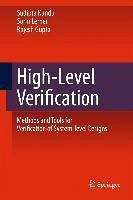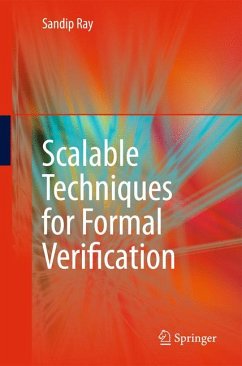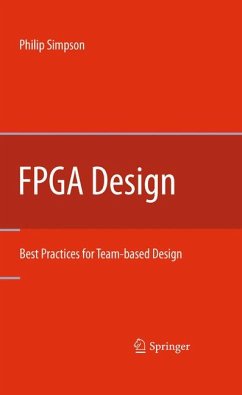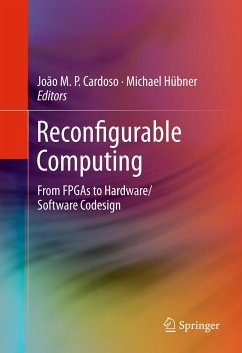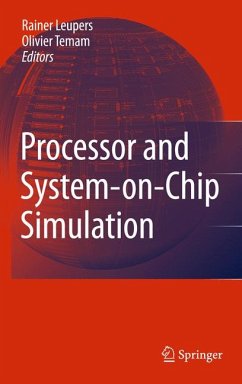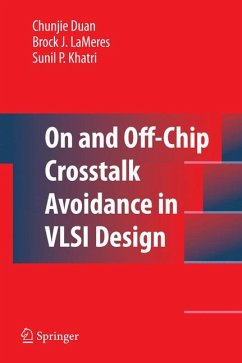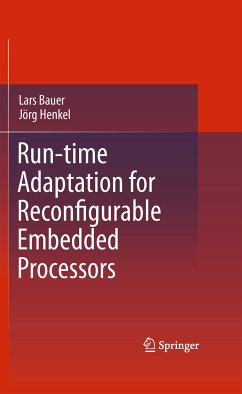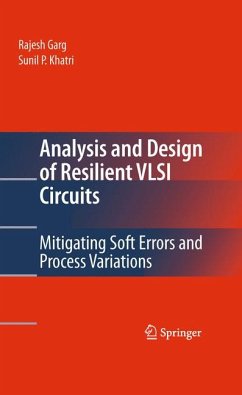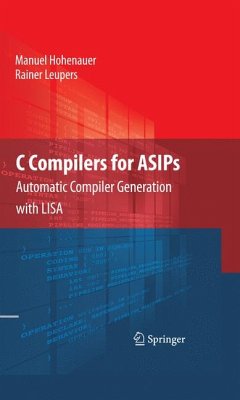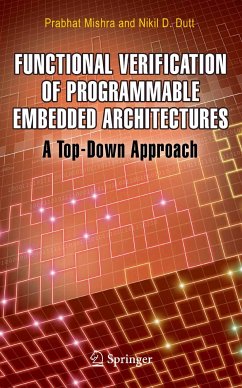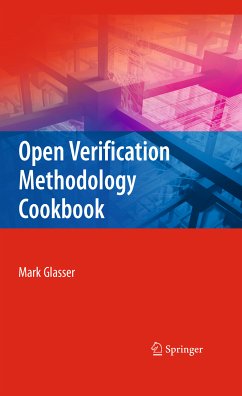
Open Verification Methodology Cookbook (eBook, PDF)
Versandkostenfrei!
Sofort per Download lieferbar
80,95 €
inkl. MwSt.
Weitere Ausgaben:

PAYBACK Punkte
40 °P sammeln!
Functional verification is an art as much as a science. It requires not only creativity and cunning, but also a clear methodology to approach the problem. The Open Verification Methodology (OVM) is a leading-edge methodology for verifying designs at multiple levels of abstraction. It brings together ideas from electrical, systems, and software engineering to provide a complete methodology for verifying large scale System-on-Chip (SoC) designs. OVM defines an approach for developing testbench architectures so they are modular, configurable, and reusable.This book is designed to help both novice...
Functional verification is an art as much as a science. It requires not only creativity and cunning, but also a clear methodology to approach the problem. The Open Verification Methodology (OVM) is a leading-edge methodology for verifying designs at multiple levels of abstraction. It brings together ideas from electrical, systems, and software engineering to provide a complete methodology for verifying large scale System-on-Chip (SoC) designs. OVM defines an approach for developing testbench architectures so they are modular, configurable, and reusable.
This book is designed to help both novice and experienced verification engineers master the OVM through extensive examples. It describes basic verification principles and explains the essentials of transaction-level modeling (TLM). It leads readers from a simple connection of a producer and a consumer through complete self-checking testbenches. It explains construction techniques for building configurable, reusable testbench components and how to use TLM to communicate between them. Elements such as agents and sequences are explained in detail.
This book is designed to help both novice and experienced verification engineers master the OVM through extensive examples. It describes basic verification principles and explains the essentials of transaction-level modeling (TLM). It leads readers from a simple connection of a producer and a consumer through complete self-checking testbenches. It explains construction techniques for building configurable, reusable testbench components and how to use TLM to communicate between them. Elements such as agents and sequences are explained in detail.
Dieser Download kann aus rechtlichen Gründen nur mit Rechnungsadresse in A, B, BG, CY, CZ, D, DK, EW, E, FIN, F, GR, HR, H, IRL, I, LT, L, LR, M, NL, PL, P, R, S, SLO, SK ausgeliefert werden.




